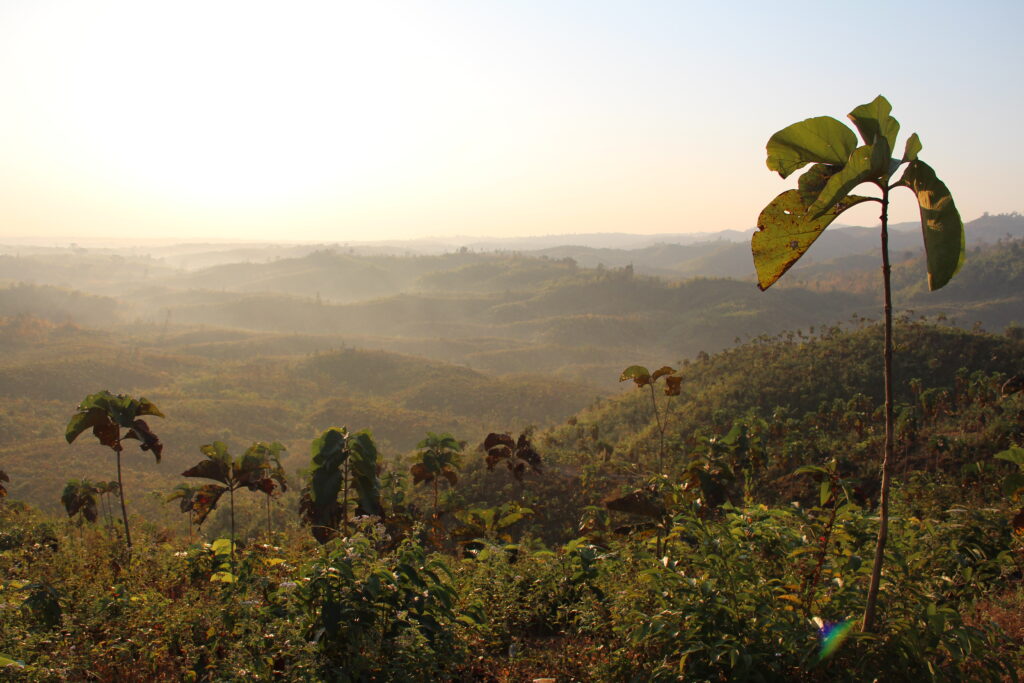
By Johann Sarna, Spring 2022 Environmental Clinic Student
Earlier this month, a landslide killed at least 17 workers at a jade mine in northern Myanmar. Tragically, incidents like this are not uncommon in the country’s resource-rich areas. In 2020, and again in 2021, hundreds of miners died in landslides within the same region. Mining companies, tied to the military regime, do little to prevent such accidents and actively hold back rescue teams for fear of further interruptions to the extraction process. For decades, this type of natural resource exploitation has funded Myanmar’s military operations and expansion. Gemstone export has proven especially lucrative and mining continues in the face of international sanctions imposed after the February 2021 coup. Teak, gold, amber, and other natural resources are also exploited by both the government and ethnic militia groups; resulting profits finance one of the world’s longest-running civil wars. Unsurprisingly, over-extraction and unchecked development has had dire consequences for local ecosystems, as well as the communities that rely on them.
In addition to the soil erosion caused by landslides around mining sites, extractive industry produces greenhouse gas emissions, contributes to habitat fragmentation, and causes water pollution. The Mekong region is one of the most biodiverse areas in the world. Illicit development and extraction will likely further endanger vulnerable species, such as the newly discovered popa langur monkey, that rely on complex local ecosystems. Moreover, the Tatmadaw, Myanmar’s military armed force, routinely confiscates the land necessary for mining and project development, seizing properties without compensation, and torturing or killing those who resist. These land grabs have exacerbated tensions between ethnic groups and the army—they are a major factor in the formation of internally displaced people (IDP) camps within Myanmar and refugee migration to Thailand.
Environmental protections exist, but they are precarious. The National League for Democracy (NLD), which came to power in 2012 and governed until the 2021 coup, did manage to reform the Environmental Conservation Law passed under the prior military regime. The NLD government also passed the Environmental Conservation Policy in 2016. But activists criticized the feeble environmental impact assessment process and pointed out that the 2016 Policy could not be referenced in court. On the other hand, some lawyers claimed that the existing legal framework was strong enough for the NLD-led government to hold private companies accountable for harm caused, and that the primary issue was the unwillingness of the Ministry of Natural Resources and Environmental Conversation to levy fines or prosecute.
Since returning to power, the military has ignored environmental rules and policies. Further, development of controversial energy and infrastructure projects will likely resume as China, Myanmar’s primary investment partner, continues with its Belt and Road Initiative. Conditions for environmental advocates have worsened. Activists have always been at risk in Myanmar—even under the quasi-civilian NLD—but since the coup, independent journalism has been effectively criminalized. Imprisonment, disappearance, and murder of environmental journalists and lawyers has increased. Still, there are ways to gather data on changing ecosystems and harmful extractive practices even where reporting on the ground poses extreme risk. Organizations like Global Forest Watch provide open-source satellite data showing change over time in regions subject to over-extraction. Such data may be useful to legal organizations, nonprofits, and governments striving to hold bad actors accountable. Lawyers can also play a role in holding corporations accountable for supporting the military regime. EarthRights International’s effort to raise awareness of the fossil fuel industry’s role in funding the junta is one example of how lawyers within affected regions can partner with American-based attorneys to counter further environmental degradation and injustice.
The articles published on this site reflect the views of the individual authors only. They do not represent the views of the Environmental Clinic, The University of Texas School of Law or The University of Texas at Austin.
